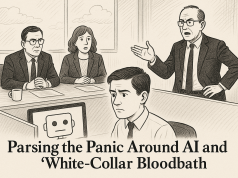In the hustle of daily deadlines, crunching numbers, and glimmering corporate towers, there’s a silent crisis unfolding in the cubicles and corner offices of our workplace landscape. This crisis doesn’t discriminate by title, tenure, or tax bracket—it’s the state of mental health in our professional lives, and the impact it has on employee engagement and productivity.
The narrative of mental health at work has long been whispered, with many suffering in silence. It’s a pervasive issue that, when left unaddressed, reverberates through the ranks, eroding the very fabric of our workforce. As an Employee Engagement Specialist, I’ve observed firsthand the profound effect mental well-being has on individuals and, consequently, the collective success of an organization.
But why is mental health often overlooked at work? The answer is complex, rooted in stigma, lack of awareness, and an historical separation of ‘work’ from ‘personal life.’ Yet, the tide is turning. As more conversations about mental health surface in the media, in our homes, and even in legislation, the workplace cannot afford to lag behind.
Leadership plays a crucial role in this shift. Compassionate, informed leaders can dismantle the stigma surrounding mental health. It starts with open dialogue and policies that acknowledge the full humanity of their workforce. Leaders must lead by example, showing that it’s not just permissible to talk about mental health—it’s encouraged.
One of the most direct actions a company can take is the implementation of mental health days. These are distinct from standard sick leave—they are a proactive acknowledgment that sometimes, the best remedy for productivity is rest and recovery. Mental health days can alleviate the pressure cooker of stress before it boils over, preventing burnout and fostering a culture of care.
Wellness programs are another strategy gaining traction. These are not the one-off, tick-box exercises of yesteryear but integrated, holistic programs that address mental, physical, and emotional health. They might include access to counseling services, meditation and mindfulness training, or workshops on stress management and resilience. Wellness programs signal a company’s investment in its employees’ overall well-being—not just their output.
As important as it is to provide these programs and policies, it is equally critical to ensure that they are accessible and that employees feel safe taking advantage of them. This is where the evolution of the workplace plays a monumental role. It’s about crafting an environment where the mental well-being of employees is as tangible and as talked about as their professional achievements.
We stand at a crossroads where we can choose to perpetuate the silent crisis or disrupt it with empathy and action. The modern workplace is well-positioned to not only recognize but proactively support mental well-being. It’s time for businesses to step up, cultivate understanding, and build an infrastructure that supports mental health. By doing so, we pave the way for a future where the workplace is an incubator for innovation, engagement, and well-being.
As readers and members of this interconnected professional ecosystem, I urge you to reflect on your own workplaces. Start the conversation, champion the cause, and advocate for change. The silent crisis of mental health in the workplace waits for no one, and the time to address it is now.




























